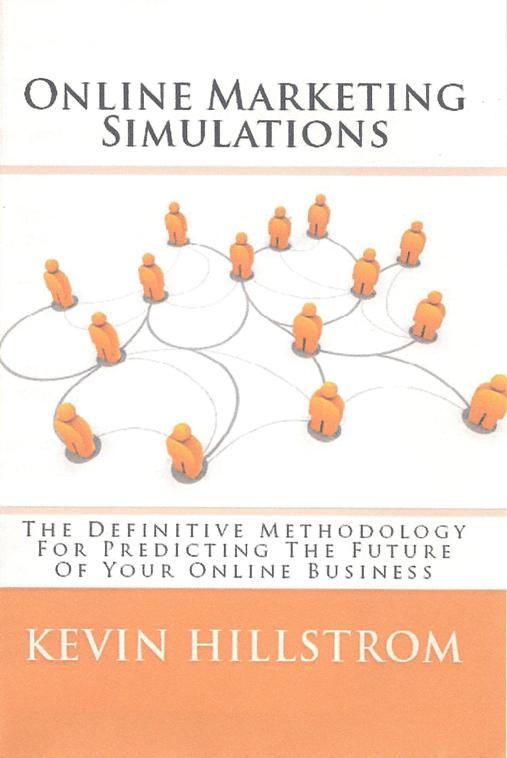Online Marketers vs. Catalog Marketers
There's nothing like an online marketing conference (IMC Vancouver, a good conference, folks!) to help one understand the fundamental difference between pure online marketers, and traditional catalog marketers.
The keynote presentation was from Google's Avinash Kaushik (blog, twitter, book). If you are a catalog marketer, then think of Avinash as being the online version of Don Libey. His unique presentation style and personality allow him to critique website marketing in a laughable way --- the audience laughs while simultaneously being critiqued!
The conference really illustrated the stark differences between online marketers and catalog marketers.
For the catalog marketer, everything starts with the catalog. Not product, mind you, but the physical catalog itself. The goal of merchandise is to provide enough profit to allow everybody to have fun creating the next catalog, merchandise productivity funds the hobby. All measurement systems are designed to prove how wonderful the catalog is. Get an order via paid search? No, the catalog caused paid search to happen, love the catalog!!!!
For the online marketer, everything starts with the next big thing. Blogs are so 2005, Facebook is already on a death spiral, it's all about tweeting your way to success, and looking for what will happen next. It is truly a throwaway society. We innovate, we tout the innovation, and when the innovation reaches the masses, it is time to move on to the next big thing, throwing away the past. And this obsession with what is new creates an infinite loop of excitement --- discover the new thing, hype the new thing, figure out how to measure the new thing, create best practices around using the new thing, get bored with the new thing, create a new thing.
The catalog marketer is obsessed with the catalog business model. The catalog marketer moves from company to company, taking catalog expertise from one company to another to try to improve the catalog performance at the other company. The goal is to further the business model. And everything is hard. It's hard to improve upon a hundred years of catalog marketing expertise. Because it is "hard", the business model discourages entry by a younger generation that can never implement new ideas, because everything has been done and proven.
The online marketer loves tactics within the online business model. You have the e-mail marketing camp, the paid search marketing camp, the affiliate marketing camp, the Facebook camp, the Twitter camp. All focus on their craft, all focus on measuring their own micro-channel. Mini-wars form across micro-channels. Everything is "easy", three easy steps to Twitter success, five easy ways to make money online, you get the picture. It's easy to experiment, to learn, to improve.
The catalog marketer is, on average, a baby boomer. The catalog marketer thinks everybody else acts/thinks like the catalog marketer acts/thinks.
The online marketer, on average, is younger than a baby boomer. The online marketer thinks everybody else acts/thinks like the online marketer acts/thinks.
The catalog marketer thinks business models within catalog marketing are unique. "Our accessories business model is simply different" or "our business is different because we sell commodity items" is a common phrase you'll hear from longtime catalog executives. As a result, you'll see catalog marketers eschew information from non-competitive catalog brands.
The online marketer is willing to absorb information from all marketers. "What are those offline folks doing?" is a phrase you often hear. Online marketers love to listen, to hear about different strategies. The online marketer, however, is not always willing to adopt a strategy outside of traditional online strategies.
The catalog marketer cares about long-term value, and proves that catalog marketing generates customers who have the best long-term value (which is usually the case), preserving the business model.
The online marketer gets caught up in the multi-dimensional aspect of long-term value associated with multiple micro-channels, finds the problem too confusing, quits, and focuses a disproportionate amount of energy finding ways to encourage a customer to convert to a purchase today. This leads to improvements in conversion that do not translate to improvements in long-term value, causing the online marketer to constantly search for the next big thing.
The catalog marketer focuses on internal strategy. How many catalogs do I offer? What are the optimal in-home dates? How deep should I circulate into my housefile? How deep should I mail into my favorite co-op? Should I do remails or new creative? Are 124 pages appropriate, or are 116 pages right? What might be an appropriate presentation of merchandise? How should density vary by catalog? How do I message so that I drive sales online?
The online marketer focuses on external strategy. How will Twitter monetize itself? Will somebody make advertising work within Facebook? Is SEO dead? What is Google doing next, and can I capitalize on it before anybody else? The focus is on what other people are doing, and it offers online marketers endless opportunities for strategic discussions. The strategic discussions can create chaotic business trajectories.
The catalog marketer does everything to save the ship. Excluding retail (Nordstrom, Bloomingdales), few catalog businesses have been willing to kill catalog marketing efforts. Cataloging is like the Empire State Building, always being updated, but will never be a modern building. The goal is always to figure out a way to cut expenses and increase the productivity of the catalog. And if productivity cannot be improved, blame is assigned --- either on the economy or on the post office, it is never, ever the fault of the catalog marketing business model. Catalog marketing is like a glass bottle that is endlessly recycled.
The online marketer will throw away a failing business in a heartbeat. The online marketer tears down skyscrapers and erects new ones. There is a reason the term "serial entrepreneur" exists. Online marketing is a plastic bottle that can be recycled, but is frequently thrown in the garbage.
This year, I spent time at catalog marketing conferences, and I spent time at online marketing conferences. The difference in approach, mindset, and confidence between catalog marketers and online marketers is staggering. No amount of multichannel babble can reconcile the stark difference in approach and experience between the two camps. Neither approach, mind you, is right or wrong. The approaches are simply different, leading to inefficient businesses. Catalog marketers can learn a lot from online marketers about passion, innovation, nimble reaction times, creativity, and adaptability. Online marketers can learn a lot from catalog marketers about building brands, maximizing the long-term health of a business, business cycle experience, the perils of discounting and inventory inefficiency, and business discipline.
Labels: IMC Vancouver


